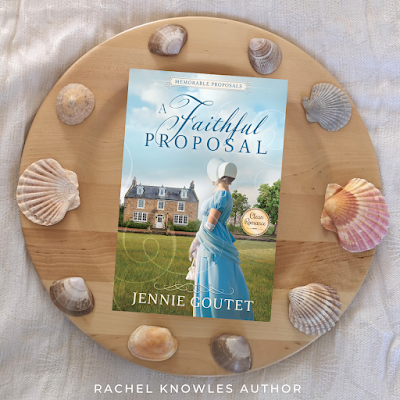A sweet Regency romance where purpose triumphs over pleasure
The scenario
Anna Tunstall goes to visit her friend Emily Leatham who is expecting a baby and needs companionship while her husband is away at sea. A short distance from her destination, Anna’s carriage is held up by highwaymen and she is knocked unconscious. Harry Aston, the rector, finds her, and is soon hoping to persuade her to stay in Avebury permanently. But Anna thrives on the fashionable life of Regency London, and she is not in a hurry to give it up.
What I really liked
I very much enjoyed this sweet Regency romance with elements of faith woven in. I loved the gentle romance between Anna and Harry, with the dramatic elements of Emily’s story and of the search for the highwaymen going on in the background. I particularly liked seeing Harry’s flaws and the way his brother brought out the worst in him. It made him seem more human than a perfect clergyman would have done. I really liked the way Anna interacted with Harry’s brother and how Goutet demonstrated that lack of openness can lead to mistrust.
Those little historical details
I am a big fan of the little historical details threaded through the narrative that give a Regency romance an authentic feel. Goutet did this beautifully, with references to Hannah More’s Practical Piety, published in 1811 (the year before the book is set), and the Treaty of Amiens of 1802, which produced a temporary lull in hostilities between the United Kingdom and France during the Napoleonic wars.
Church customs
The hero, Harry, is a clergyman, and there are some interesting details about church life in the Regency including buying church pews and tithing. These sent me scurrying off to do some research as it was not an area I had looked into before.
I was aware of the existence of tithing, but I had assumed it operated like a parish tax and was paid in money, like a rent payment. It was something of a surprise to discover that in the Regency, although sometimes a monetary arrangement was made between the tithe payer and the tithe owner, tithes could still be paid in kind, as Goutet mentions in A Faithful Proposal.
The idea of owning or renting a pew seems appalling to me, but it was a source of income for the church at this time. In discouraging this practice, Harry was risking a reduction in the church’s income.
A word about words
I am always intrigued when I check out words that don’t sound right to me in a Regency setting only to discover they are perfectly acceptable. A quick look in my etymological dictionary told me it was fine to use chum and poppet (though it did make me think of Pirates of the Caribbean!).
Other words, such as touché – an exclamation to acknowledge a hit in fencing – sound right, as gentlemen fenced in the Regency, and yet the first recorded use according to my etymological dictionary was 1902!
Since reading this book, I’ve added two more by
Jennie Goutet to my Kindle library. I guess I must have liked it this book
quite a lot.
Clean and sweet?
Heat level low – just kissing.
Christian characters with references to faith, prayer and purpose.
No swearing.
Mild violence/accident.
5 stars Highly recommended
Find out more about Rachel's books and sign up for her newsletter here.




No comments:
New comments are not allowed.